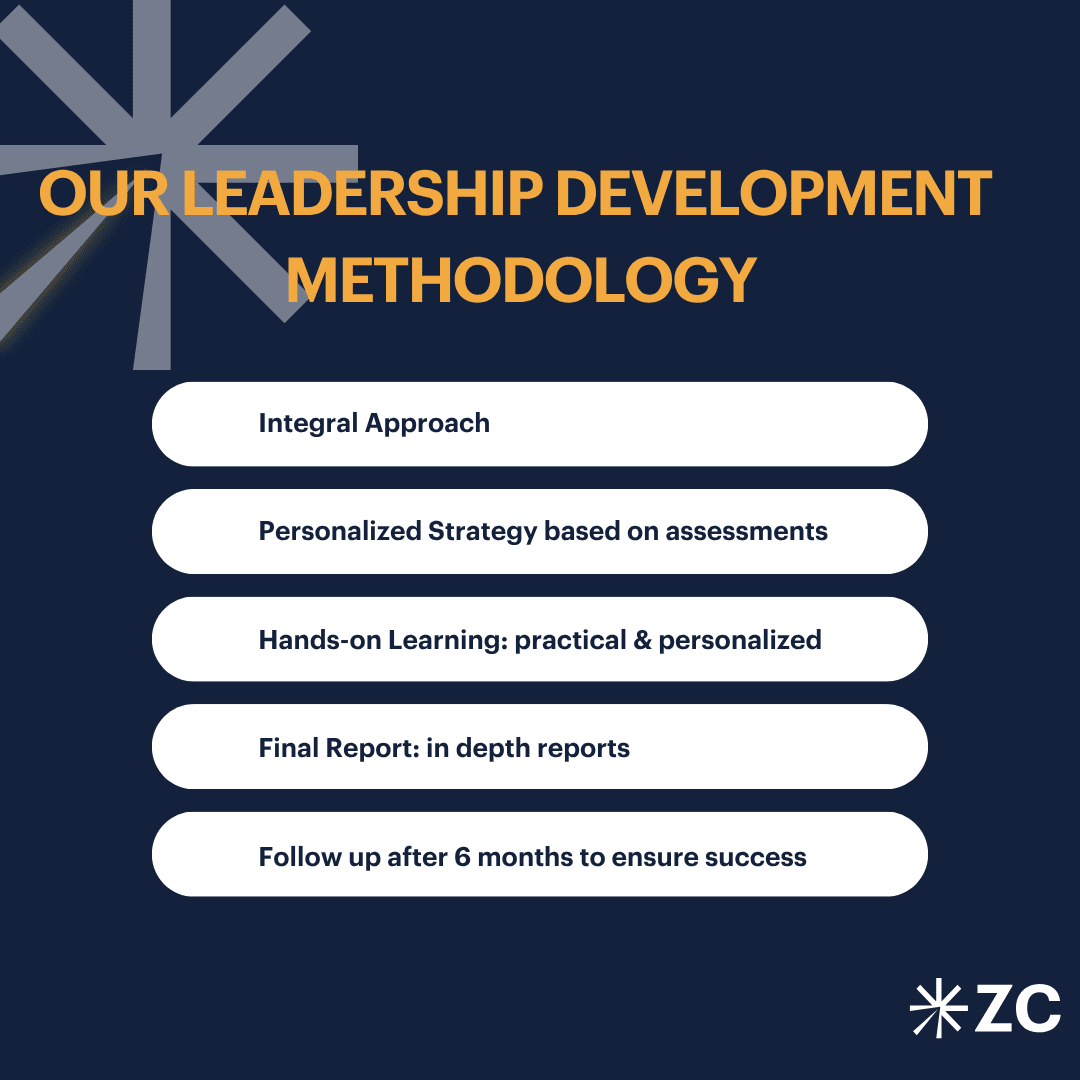Effective leadership skills are crucial for any business to thrive in our current landscape. Nowadays business employ diverse methods to work their employer’s skill. Including internal training, external support from third parties, formal educational qualifications and traditional ¨learn by doing¨ approach. Zavala Civitas is a talent solution provider, although they look for top notch talent, they also understand the need of improving the existing talent within organizations. As an executive search firm, we understand the need to improve the existing talent.
Having had the opportunity to collaborate with numerous companies through our programs, we have gained a deep understanding that allows us to identify the key challenges commonly faced by these organizations.
Five Leadership Development Challenges Executives Are Facing
- Responding to change
In an increasingly globalized and turbulent economies with unexpected events going on, change is a major topic to confront. The ability to adapt and move forward with new situations is a crucial thing for leaders. According to the report, 89% faced difficulties remaining agile through radical changes. An equal percentage mentioned “dealing with business reorganization and restructuring” as a challenge. - Talent attraction and retention
Another big challenge cited by executives is the lack of investment in recruitment process as well as the lack of investment in development programs for the talent within the businesses. Attracting and retaining the next generation of leaders is a crucial investment. To stay ahead, organizations must not only address these issues but also adapt to emerging trends such as remote work, diversity and inclusion initiatives. - Geographic and cultural diferences
When it comes to a focus on DEI, a significant divergence was found across diverse countries. As an example, 80% of North American respondents expressed a greater interest in enrolling in DEI-related leadership courses, whereas the percentages for Australia and the UK were 58% and 33%, respectively. - LD centered culture
The report identified that the most significant challenges in implementing LD programs are the “lack of interest from the individuals who would benefit from the training” (35%) and the “limited awareness of the advantages of leadership training” (33%). This highlights the importance of creating a culture within organizations that emphasizes LD and where leaders regularly communicate the specific benefits of these programs. - Long term success
The research emphasizes that organizations focusing on long-term success prioritize leadership programs, collaborate with capable external partners, and integrate leadership development into their culture. These elements create a leadership pipeline, access to external expertise and innovation, and a culture that fosters adaptability and innovation. This strategic approach positions organizations to address future challenges effectively and achieve sustained success in a competitive business landscape.
The Value of Leadership Programs and Executive Assessments
“Companies that invest in leadership development see 25% better business outcomes.” exec.com
Fuente: “29 Eye-Opening Leadership Development Statistics. A well-designed leadership program supported by executive assessments helps organizations make informed, strategic decisions about their talent. It provides clarity on strengths, development areas, and long-term potential, ensuring leaders receive tailored support to grow effectively and drive the business forward.

To achieve long-term success, it is crucial to prioritize leadership programs to enhance the internal talent within companies. At Zavala Civitas, we tailor leadership programs to meet the specific needs of each client, recognizing that each individual is unique. Through quantitative and qualitative psychometric assessments, we develop the necessary program to assist your leaders in excelling in their roles. Click here to get in contact with us.









